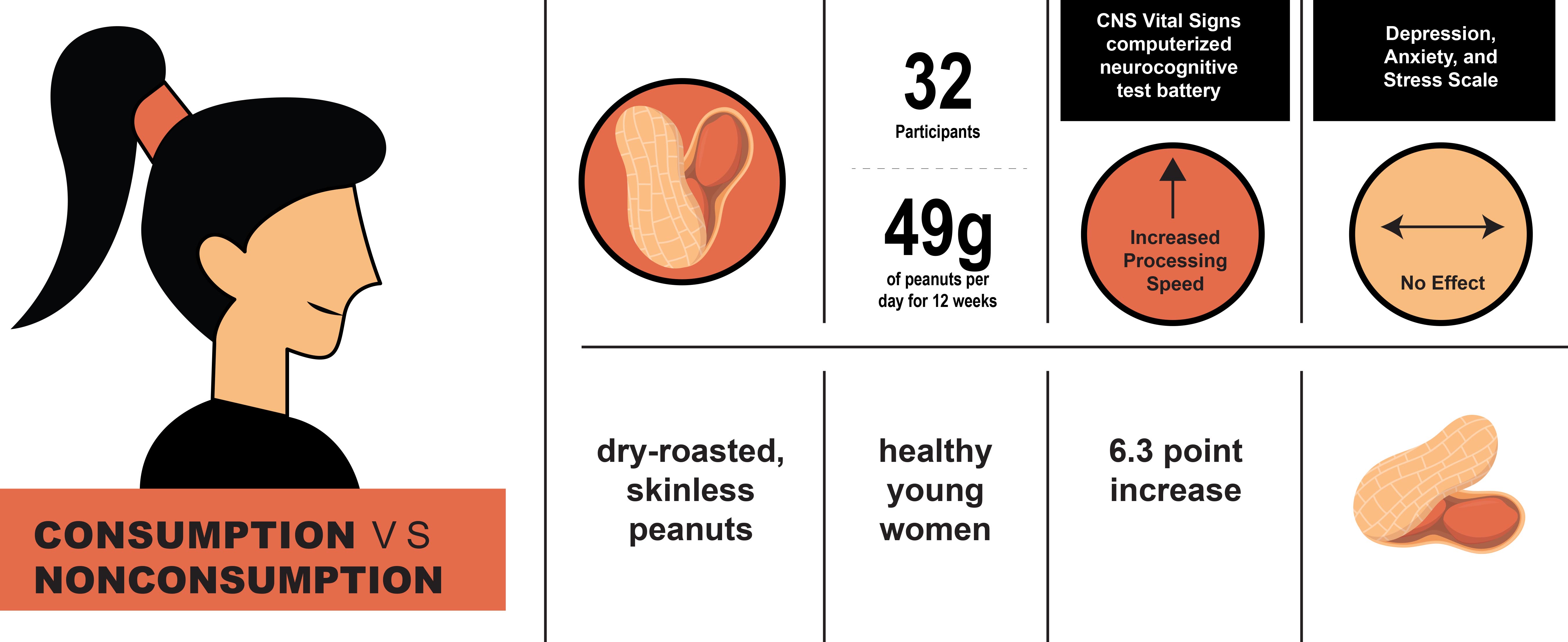The effect of daily peanut consumption on cognitive function and indicators of mental health among healthy young women
DOI:
https://doi.org/10.31989/ffhd.v12i12.1010Abstract
Background: Peanuts and tree nuts contain many bioactive compounds that may provide health benefits. There is some evidence to suggest that regular consumption of peanuts and peanut butter may improve cognitive function and mood, however, there are no prior studies examining whether daily intake of dry roasted, skinless peanuts improves cognition.
Objective:The objective of this study was to determine the effect of consuming 49 g/day of peanuts for 12 weeks on cognitive function and mental health, compared to consuming a peanut-free diet, among healthy young women.
Methods:This was a pre-post test study of 65 women (n = 32 in peanut group, n = 29 in control group). Participants in the peanut group consumed an individually portioned pack of peanuts each day for 12 weeks. Cognitive function was assessed using the CNS Vital Signs computerized neurocognitive test battery. Mental health was assessed using the Depression, Anxiety, and Stress Scale (DASS-42). Differences in endpoints between groups were assessed using ANCOVA tests.
Results:There was a significant difference between the two groups in reaction time (6.9 points; p = 0.029), with the control group having a greater increase in scores. There was a significant within-group effect of peanuts on processing speed, with the peanut group increasing scores by 6.3 points (95% CI: 2.7, 9.8). There was no effect of peanut consumption on depression, anxiety, or stress scores.
Conclusion:Further research is needed to fully understand the effect of different types of peanut products on cognition.

Keywords: cognition, mental health, peanuts, nuts
Downloads
Published
Issue
Section
License
Authors retain the copyright of their articles and grant the Functional Food Center (FFC) and its journals the right of first publication under the terms of the Creative Commons Attribution 4.0 International License.
This license permits unrestricted use, distribution, and reproduction in any medium, including commercial use, provided the original author(s) and source are properly credited. Authors may post and share their published work freely, provided that the original publication in this journal is acknowledged.
By submitting to this journal, authors confirm that their manuscripts are original, not under consideration elsewhere, and that they hold the necessary rights to grant this license. The Functional Food Center encourages open scientific exchange and allows derivative and extended works, provided attribution to the original publication is maintained.